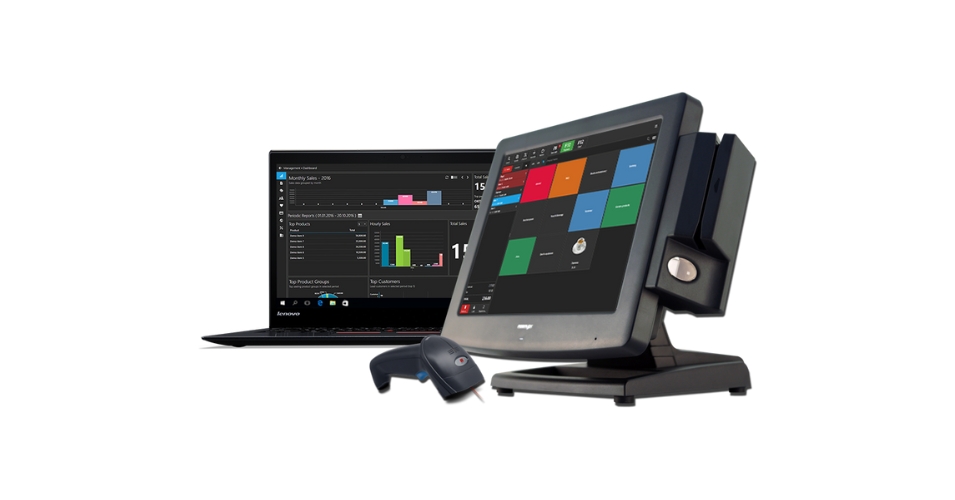Picture this your business is on the rise, projected sales are coming in, your team’s expanding, and workflow is becoming overwhelming. It’s the kind of growth you’ve been dreaming of, but there’s a catch the strategies and tools that got you here aren’t compromising with you anymore. You’re juggling outdated software, struggling with inefficiencies, and your once smooth business is now full of bottlenecks.
You’ve reached that moment every growing business faces:
Do you stick with an off-the-shelf software solution, something quick and ready to go?
Or do you invest in custom-built software, altered precisely to your unique needs?
Dividing between these two is important as it’s about the future of your business. You need something that will help you in the long term. So, Which option will help your business manage heavy operations better and more smoothly? Thats the sole purpose of this blog is to help break down your business needs when choosing software for your company. Let’s Decide!
Understanding Off-the-Shelf Software for Your Business
Off-the-shelf software refers to pre-packaged solutions designed for a broad range of businesses with similar operational needs.
It’s the kind of software you can see below that you can purchase, install, and start using almost immediately for your business, without much customization required.

Think of off-the-shelf software like buying a ready-made suit—it fits a lot of people reasonably well, but it’s not tailored to your exact measurements.
Examples:
- Microsoft Office: Widely used by businesses for document processing, spreadsheets, and presentations.
- QuickBooks: Ideal for accounting and financial management.
- Trello: A popular project management tool used by teams worldwide.
- Salesforce: A robust CRM platform that serves companies across various industries.
Key Characteristics:
- General purpose: Built to handle common business processes that many companies share.
- Available immediately: No need to wait; you can purchase, install, and get started the same day.
- Tried and tested: These tools have already been used by thousands (if not millions) of businesses, which means bugs and issues are often worked out early.
Off-the-shelf software is like plugging in a device and instantly getting access to a range of features that work for most businesses.
But is it enough to handle the unique intricacies of your operations? Let’s look at custom software next.
Understanding Custom Software for Your Business
Custom software is specifically designed to meet the unique needs of your business like the one below. It’s built from the ground up to align with your operations, workflows, and goals.

Unlike off-the-shelf solutions, custom software is like a suit that is tailored exactly to your measurements. It fits your business perfectly because it’s made just your business.
Examples:
- A custom CRM for a niche business: A platform altered to track the specific sales pipeline and customer details unique to your industry.
- Industry-specific apps: A tool built for managing complex logistics in a manufacturing company, or a scheduling platform designed for healthcare providers.
- Proprietary e-commerce platforms: Custom software that integrates your inventory, shipping, and payment processes seamlessly, built specifically for your business model.
Key Characteristics:
- Tailor-made: Every feature is built around your exact needs, ensuring no unnecessary features clutter up your operations.
- Built from scratch: Custom software development starts with understanding your business goals and processes, and then creating software to meet those demands.
- Scalable and flexible: As your business grows, the software can grow with you. You have complete control over how it evolves.
Custom software provides flexibility and precision, but the initial investment is typically higher. However, the potential long-term benefits might be well worth it.
Pros and Cons of Off-the-Shelf Software
Pros:
- Cost-Effective: Off-the-shelf software usually has a much lower upfront cost because the development costs are spread across many users. You’re essentially paying for a product that’s already been built and refined.
- Immediate Availability: This is one of the biggest advantages—off-the-shelf software is ready to go as soon as you purchase it. There’s no waiting period for development or extensive configuration.
- Support and Updates: Most off-the-shelf software comes with regular updates, security patches, and customer support. These updates are often rolled out automatically, and support is available to troubleshoot any issues you encounter.
- Low Risk: Because these products are used by a wide range of businesses, they’ve been heavily tested. This means there’s less risk of major bugs or failures compared to untested solutions.
Cons:
- Limited Customization: Off-the-shelf software is built for a broad audience, which means you might be stuck with features you don’t need or missing key functionality specific to your business.
- Scalability Issues: As your business grows, you might find that off-the-shelf software can’t keep up with your increasing needs. You may have to switch to a more expensive package or even move to a custom solution later on.
- Dependence on Vendor: Your business is tied to the software provider for updates, security patches, and support. If they stop supporting the software or change the pricing model, you might face unexpected challenges.
Hidden Costs: While the initial cost is low, off-the-shelf software often comes with subscription fees, additional costs for advanced modules, or expensive licenses to scale your usage.
Pros and Cons of Custom Software
Pros:
- Tailored to Your Business: The biggest advantage of custom software is that it’s built specifically for your business. Every feature, function, and design element is crafted to meet your exact needs, which leads to greater efficiency and effectiveness.
- Scalability and Flexibility: Custom software grows with your business. As your needs evolve, you can add new features, integrate more tools, or scale it to handle larger volumes of data and users.
- Ownership: With custom software, you have full control. You decide when to update it, what new features to add, and who can access it. There’s no dependency on a vendor’s roadmap or support timeline.
- Competitive Advantage: Since custom software is designed just for your company it can give your business an edge over competitors still relying on generic tools. You can implement unique features that cater directly to your market or operational needs.
Cons:
- Higher Initial Cost: Developing custom software is a significant investment. You’ll need to pay for the design, development, testing, and deployment upfront, which can be much more expensive than purchasing off-the-shelf software.
- Longer Development Time: While off-the-shelf solutions are ready immediately, custom software can take weeks or months to develop, depending on the complexity. This requires a longer planning phase before you see the finished product.
- Ongoing Maintenance: After launch, the responsibility of maintaining, updating, and fixing bugs falls on you or your development team. This can add to the ongoing costs of custom software, although many businesses choose to outsource this maintenance.
- Risk of Obsolescence: Software technology changes fast, and custom software needs to keep up. If your software isn’t updated regularly or built with future trends in mind, it may become outdated, requiring additional investments to stay relevant.
Key Factors to Consider When Deciding
Choosing between off-the-shelf and custom software isn’t just about what works today; it’s about what will serve your business well in the future. Before making a decision, there are a few key factors to weigh:
Business Size and Needs

Smaller businesses with relatively simple needs often find that off-the-shelf software fits just fine. These solutions can handle common processes like accounting, project management, or CRM without requiring extensive customization. Plus, they can be implemented quickly, which is often crucial for businesses that need to streamline operations right away.
On the other hand, larger enterprises or businesses with unique workflows may outgrow off-the-shelf solutions.
Custom software is often the better choice for companies with complex needs that can’t be addressed by generic tools.
For example, a business that requires specialized reporting or niche process automation will benefit from software built specifically for its operations.
Tip: Evaluate how specialized your processes are and whether a general solution will suffice or if you need something more specific to your industry or operations.
Budget

Budget is often one of the biggest factors influencing the decision. Off-the-shelf software typically has a lower initial cost, with most solutions available through affordable subscription models.
However, it’s essential to consider the long-term expenses, including licensing fees, possible upgrades, and extra features that may come at a premium.
Custom software, while more expensive upfront, can be more cost-effective in the long run if it eliminates the need for multiple subscriptions or third-party add-ons. It’s also a one-time investment, with the potential for future savings as your business scales and the software adapts with it.
Tip: Weigh the initial investment against long-term costs. Sometimes, custom software can save you more money over time despite the higher upfront price.
Timeline
If time is of the essence, off-the-shelf software might seem like the obvious choice. It’s ready to use as soon as you purchase it, and you can hit the ground running almost immediately. Businesses looking for a fast solution with minimal setup often prefer this option.
Custom software, on the other hand, requires significant development time. From planning to design to development, testing, and deployment, it can take months to have a fully operational solution.
However, the time invested is often worth it when the software fits your business perfectly and provides a long-term solution tailored to your needs.
Tip: Consider how urgent your software needs are. If you can afford the time for custom development, it may be a better long-term investment.
Scalability
As your business grows, so do your software needs. Off-the-shelf solutions might work well initially, but as you scale, you may find they can’t handle increased users, data, or complexity. Many businesses outgrow their generic software and end up paying for expensive upgrades or entirely new systems.
Custom software is built with your growth in mind. It can be designed to scale alongside your business, ensuring it meets your needs not just today, but years down the road.
You have the freedom to add features and integrate new functionalities as your operations expand.
Tip: Think long-term. If your business has ambitious growth plans, ensure the software you choose will scale with you rather than limit your potential.
Integration Needs
Off-the-shelf software often operates well within its ecosystem, but problems arise when trying to integrate it with other systems. You may find that your CRM doesn’t play nicely with your accounting software, or that your project management tool can’t sync data with your marketing platform. This can lead to data silos and inefficiencies.
Custom software, by contrast, is built to integrate seamlessly with your existing tools. Whether you need it to work with your ERP, accounting system, or customer-facing applications, custom app development allows for smooth and specific integrations that reduce headaches and manual workarounds.
Tip: Evaluate your current systems and how well a new software solution will integrate with them. Custom software ensures everything works together efficiently.
Security

For industries that deal with sensitive data—such as healthcare, finance, or legal services—security is a paramount concern. Off-the-shelf software providers usually offer decent security measures, but these are generalized and may not be enough for highly regulated industries or businesses with unique security needs.
Custom software allows you to build security measures that align with your specific risks and compliance requirements.
You can implement industry-specific safeguards, data encryption, and multi-factor authentication tailored to your business.
This level of customization ensures that your security is as strong as it needs to be for your particular operations.
Tip: If security is a critical concern, custom software may be the better option to ensure you meet all industry regulations and safeguard sensitive information.
Real-Life Case Studies
Off-the-Shelf Success Story: Small Business Efficiency
A local retail shop had outgrown its manual system of managing inventory and finances. Looking for a quick fix, they implemented QuickBooks and Trello to streamline their operations. With these tools, they were able to track sales, manage inventory, and improve collaboration across their small team.
By using off-the-shelf software, the business quickly eliminated many of its operational inefficiencies without spending a lot of money.
QuickBooks automated their financial reports, and Trello made it easier for the team to stay on top of daily tasks.
The decision to go with off-the-shelf software saved them time and money, allowing the owners to focus on growing the business.
Takeaway: For small businesses with straightforward needs, off-the-shelf solutions offer a fast, cost-effective way to improve efficiency and manage growth without breaking the bank.
Custom Software Success Story: Scaling with Precision
A mid-sized logistics company, on the other hand, found that none of the off-the-shelf solutions could handle their unique supply chain requirements.
They needed real-time tracking of shipments, integration with multiple third-party vendors, and a custom reporting system that could pull data from various sources.
The company invested in custom software tailored to their exact workflow. The software included automated tracking, advanced reporting features, and seamless integration with external vendors.
Not only did this improve efficiency, but it also gave them a competitive edge in the market. The custom solution scaled with their growing business, eliminating the need to switch software later on.
Takeaway: For businesses with complex, industry-specific needs, custom applications, and software can provide the scalability and precision required to maintain and grow competitive advantages.
Current Trends in Business Software
AI and Automation
As AI and automation become more prevalent, many off-the-shelf software providers are incorporating these features into their products.
This means even small businesses can access advanced tools like automated customer service chatbots, predictive analytics, and workflow automation without investing in custom development.
Custom software, however, takes AI and automation to the next level. Businesses can integrate AI technologies tailored to their unique operations, such as machine learning models for predictive maintenance in manufacturing or AI-driven personalization for e-commerce platforms.
Custom Software as a Service (SaaS)
SaaS companies are now offering more customizable solutions, allowing businesses to enjoy the affordability and flexibility of off-the-shelf software while still tailoring some features to their specific needs.
This hybrid approach is becoming popular as it provides a middle ground between full custom development and standard software.
Hybrid Solutions
Many companies are starting to combine off-the-shelf platforms with custom-built integrations. For example, they might use a popular CRM platform but build a custom integration that links it with a unique internal database.
This allows businesses to leverage the power of established software while also addressing their specific needs.
Which One is Best for Your Business?
When it comes to choosing between off-the-shelf and custom software, custom software emerges as the clear winner for businesses with unique needs, plans for growth, and the desire for a competitive edge.
While off-the-shelf solutions are a great choice for startups and small businesses with limited budgets and immediate needs, custom software provides the flexibility, scalability, and control necessary to future-proof your business.
By investing in custom software, you’re not only tailoring a solution that fits perfectly with your operations but also ensuring that as your business evolves, your software grows with you, giving you full control over its development, features, and security.
Ultimately, the ability to customize, own, and continuously optimize your software makes custom solutions the best long-term investment for businesses looking to stand out in a competitive market.
Conclusion
The choice between off-the-shelf and custom software ultimately depends on your business’s unique needs, growth plans, and budget.
Off-the-shelf software offers a quick and affordable solution for many businesses, especially those with straightforward needs.
However, custom software is often the better long-term investment if you require a solution that grows with you, adapts to your specific processes, and gives you full control.
Publicly Asked Questions
When should a business choose custom software?
Custom software is ideal when your business has unique processes or specific requirements that off-the-shelf solutions can’t address. It provides more flexibility, scalability, and personalized features, but usually requires a higher initial investment.
What are the downsides of off-the-shelf software?
Off-the-shelf software can have limited customization options, may not integrate well with existing systems, and can lock you into a vendor’s updates or pricing. It may not perfectly match all business needs.
Is custom software more expensive than off-the-shelf solutions?
Yes, custom software typically involves higher upfront costs due to development time and resources. However, it can offer a better long-term ROI if it fits your business needs exactly and grows with your business.







